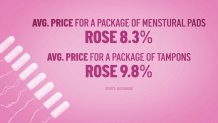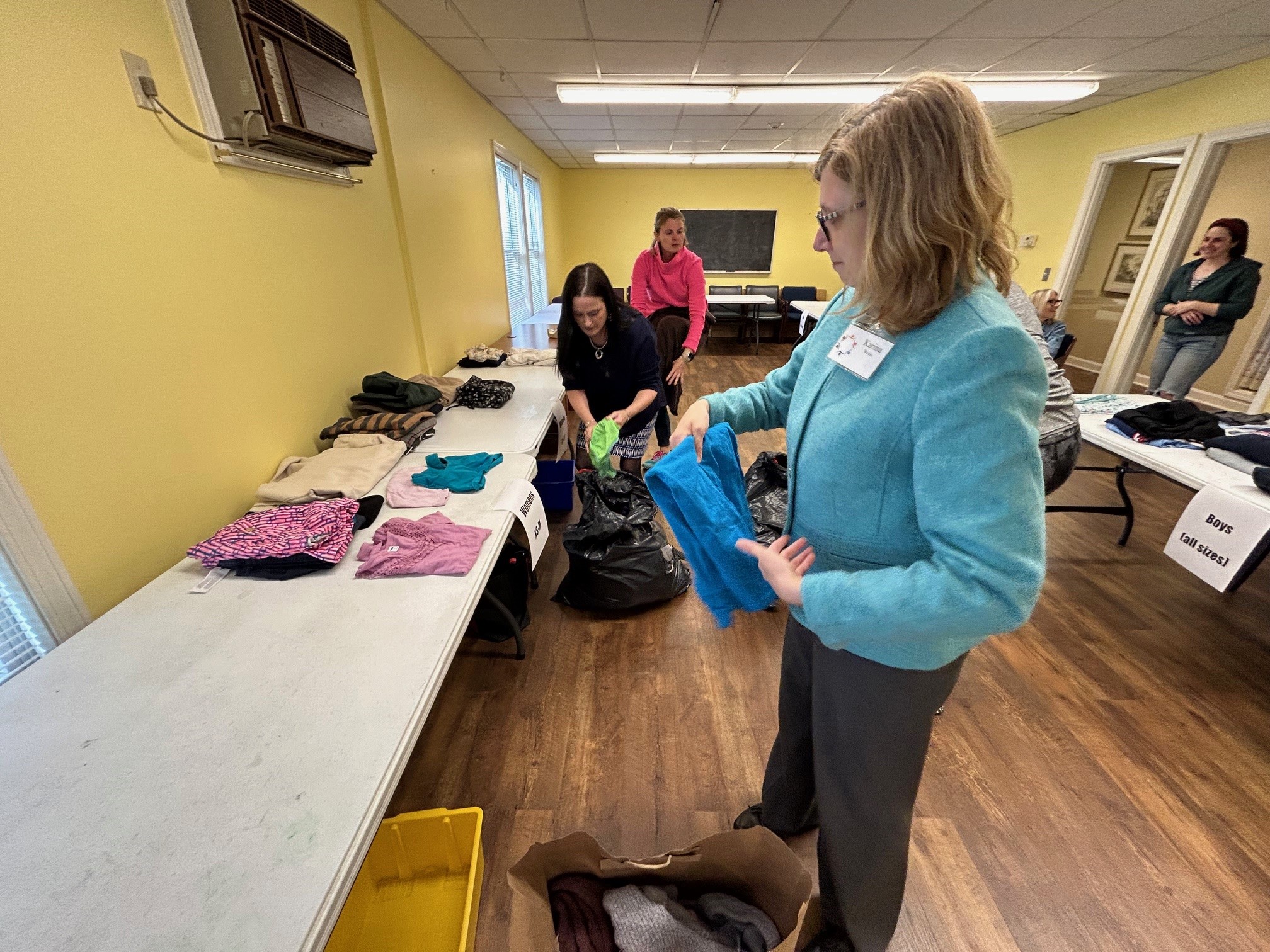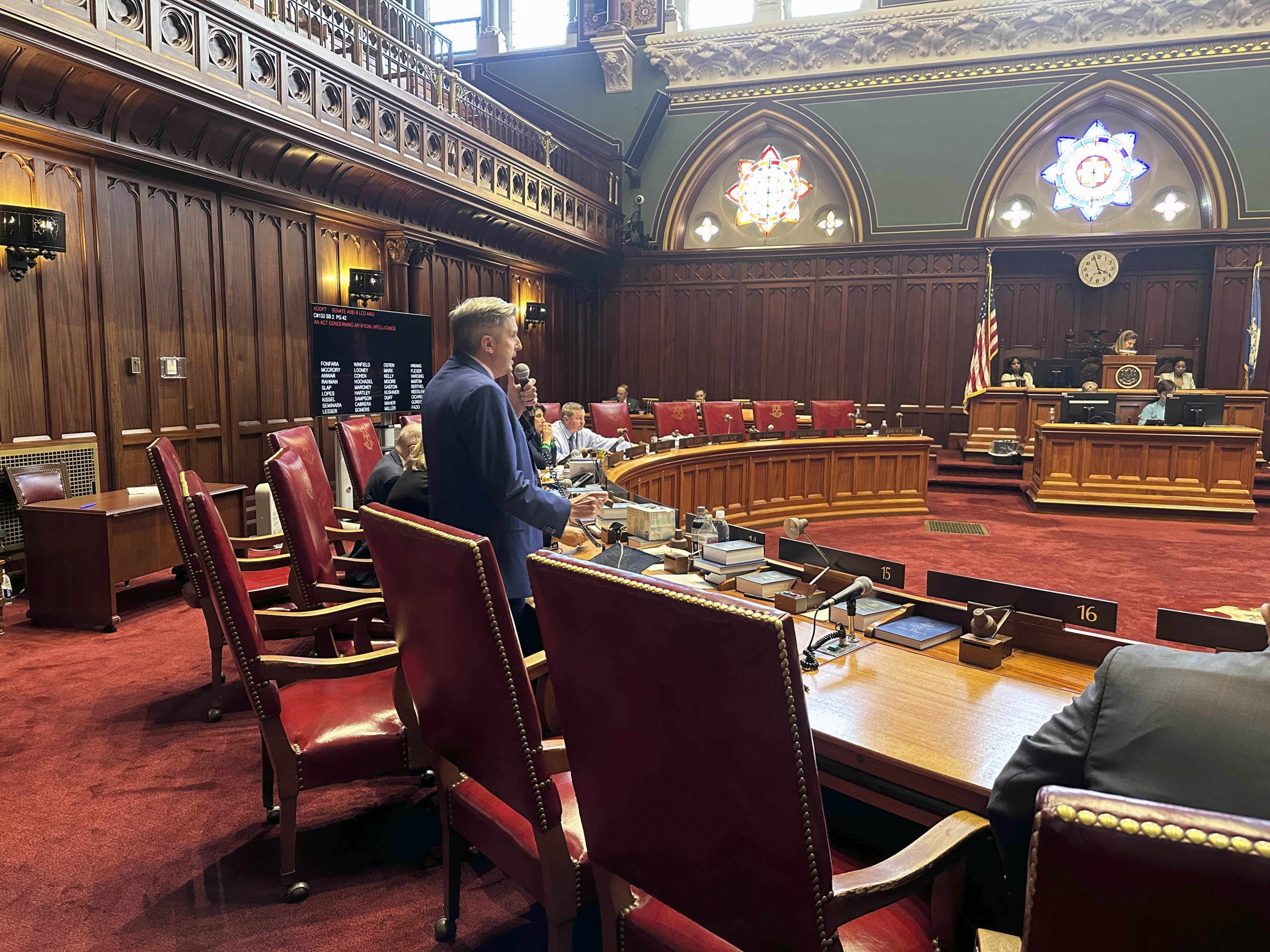Global supply chain shortages are now impacting feminine care products. If you have been struggling to find your favorite tampon brand in a store near you, you are not alone.
Tampons are running low on shelves across the country and it's happening as the product is getting more expensive.
"It's a little concerning that we are missing some of the stuff that we need," said Olivia Sokale, a shopper from West Hartford.
An NBC Connecticut crew went to several different stores across Connecticut Monday and found similar sights: tampon shelves with limited supply and high prices.
Get Connecticut local news, weather forecasts and entertainment stories to your inbox. Sign up for NBC Connecticut newsletters.
“It is really the last straw of the last couple of years," said Marina Creed, a mom from West Hartford.
Tampax was among the brands missing on store shelves in Connecticut. Its maker, Procter & Gamble (P&G) recently confirmed to NBC News that some consumers may currently be unable to find what they need. According to a spokesperson, the company is working with retailers and producing tampons around the clock.
Experts blame the shortage on the rising price and accessibility of raw materials like cotton.
Local
“It is a shortage of supplies - everything from the plastic, the cotton - all of the materials used to make the product," said Angelica Gianchandani, a practitioner in residence at University of New Haven's Pompea College of Business.
Gianchandani said that climate change is also affecting the accessibility of tampons.
"When the crops don't have the right weather patterns, they are unable to harvest the cotton and unable to use that material in tampons. That is an increased, deeper issue that is affecting the tampon shortage," said Gianchandani. "When women do not have access to this, it impacts everything from their opportunity to go to school, go to work and just interact in society."
Experts have also cited staffing shortages as contributing to the tampon shortage.
According to data cited by Bloomberg, the average price for a package of pads rose 8.3% this year. The average price for a package of tampons rose nearly 10%.

“This should not be something that women and mothers need to be worried about right now," Creed said.
Lack of access to period products is not new. A 2021 U by Kotex study showed two in five people had struggled to purchase period products and more than one-third of low-income women reported missing work or school because they couldn't get the supplies.
"This shortage highlights what some people feel every single day," said Janet Stolfi Alfano, who leads the Diaper Bank of Connecticut.
The Diaper Bank of Connecticut has a period products distribution program. Last year, they provided more than 146,000 supplies to partners across the state. So far, the nonprofit has not felt the impact of the tampon shortage.
"We always are concerned with having an adequate supply, certainly. Whatever the cause," Stolfi Alfano said.
As a major tampon maker reports that they are ramping up production, people in Connecticut hope this shortage sheds light on the need to make period products more accessible.
"It's a necessity. You can't get rid of that," said Samantha Corcoran, a shopper from New London. "I just think it's crazy. Something needs to happen."



